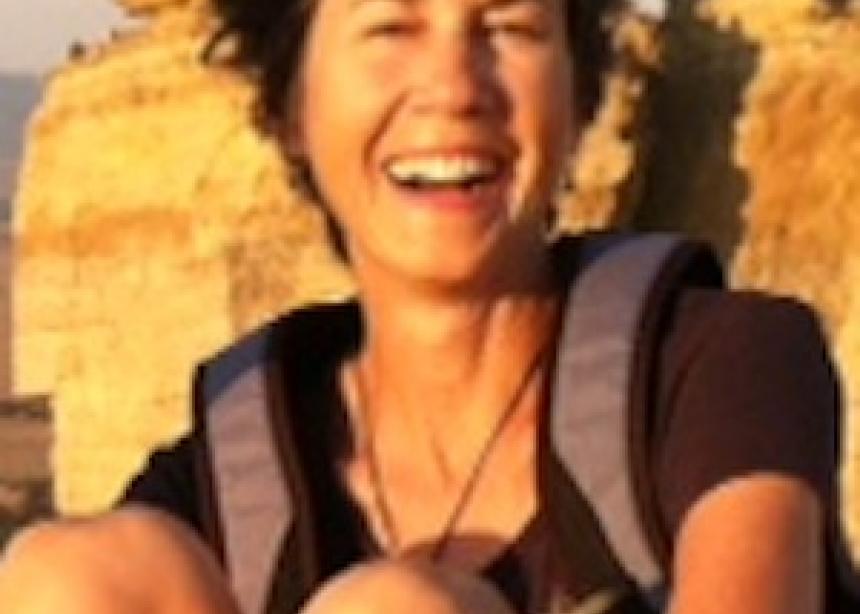Recently I was visiting the homeland of my childhood, Wayne County, in Northeast Ohio. Here, corn is king, God and family are first and most have been farming for generations. The land is wrapped in grain fields and mature hardwoods. Cows idyllically graze on rolling green pastures. Communities are prolific with vegetable gardens and graceful flower beds. My people are German-Swiss Amish and Mennonite immigrants from the 19th century, by and large insulated from the rest of the world’s vicissitudes. Until recently.
Paradise has been interrupted not only by the horrific drought that has ripped a hole in the Midwestern breadbasket, leaving it ragged and gasping for rain. They are also being newly assaulted by the natural gas industry, hungry for profits in a land that supposedly has a deep shale field full of natural gas reserves. Yes, my homeland hosts the farthest western rim of the Marcellus and Utica Shale. For gas conglomerates, it is a dream come true.
They say that there are vast reserves of gas deposits deep in the shale of Northeast, extending into Southern Ohio for the next 100 years, to meet our country’s energy guzzling habits. The only problem is that the process of extracting is as “dirty” as mountain top coal removal, leaving toxic chemicals in its wake, heavy metals in the water, air and soil. But the gas companies won’t tell you that.
This is also in a part of the country where information has not trickled down about the disastrous public health effects that horizontal hydraulic fracturing, otherwise known as fracking, has left behind in places like Pennsylvania, Colorado, Wyoming, Texas, New Mexico. This in itself, is a small miracle for the fracking industry, given the newly informed citizen watch groups roaring to life in Colorado, New York and other Eastern states. Their outcry has forced a moratorium on drilling in towns who have decided to exercise the precautionary principle—basically, do no harm—as they research public health risks, before fouling their proverbial nest.
As I visit my parents and their neighbors, both Amish and Mennonite, I begin to realize the gravity of the situation. People really have no idea of the published public health effects of fracking. Instead, they welcome the gas company carpetbaggers, who come in droves, descending upon the county assessor and auditors offices. Everyone is tracked down who has a sliver of land to sell. Corporations prefer buying blocks of land so that they can merrily frack whole swaths of farmland without interruption. Everyone gets an invitation to meetings.
Words such as “gushers” and quick money to be made are passed by word of mouth. It is like a raging wildfire or an out of control grapevine. Farmers and landowners hold meetings with hundreds attending, quickly trying to patch together the gas company’s wishes of large tracts of leased land. Those who don’t buy into the deal are pressured to do so, just so they are covered in case of contamination. Otherwise they would have no recourse if their neighbor’s fracked land leaches millions of gallons of volatile chemicals and heavy metals into their shared ground water or air.
As I visit people, handing out information they wouldn’t get from profit driven gas companies, I am impressed by the fact that my Mennonite and Amish neighbors have not been cautioned by anyone about public health, safety and the lack of regulation and zoning in Ohio. They don’t know that soon their bucolic farmland will be turned into an industrial zone if a wet well is found. They don’t know that these U.S. companies are tied to foreign investors with deep pockets.
For instance, with a little research, I learn that the first well drilled in my parent’s neighborhood, 5 miles southwest as the crow flies, is by Devon Energy. They are set to sweeten the pot for the Chinese investor, Sinopec, who would reap not only in currency, but in gas assets themselves. There goes the myth that this is for U.S. gas independence, jobs and economic gain only. It’s a global boom or bubble. And everyone wants a piece.
I am shocked to see many folks—whom I knew as a cautious, fiscally and politically conservative, church going, German-Swiss stock—racing to speculate and gamble on leases. These leases will keep on giving not only for their children, but for generations to come. Their progeny will be locked into the ugly game of Russian roulette with gas companies, their land and lives no longer their own, swapped like cards. I wouldn’t have believed it if I hadn’t seen with my own eyes, heard with my own ears. Men ensuring that their plot of land, dedicated to farming for centuries, was in on the gas lottery.
I am left reflecting on this culture where I grew up. My parent’s Amish neighbors are among the least of my brethren in terms of energy usage. They live simply, opting for horse and buggy and a non-electric lifestyle. It made absolutely no sense to me, that they would lease the family farm, so to speak, to the worldly and unsavory politics of big gas and oil. I wondered what happened to the ethic of caring for the land and ensuring it for one’s children.
And what about my Swiss Mennonite town? I worry about the potential fragmentation of what I see as a vital and robust community ethic—carved up by “who signed up” and “who didn’t.” Will trust be destroyed and suspicion ignited as fracking pits farmer against farmer? Will the gospel mandate, "Love thy neighbor" become thin and weakened. What happens when millions of dollars are made by one neighbor and none by the next, but all share the legacy of a ravaged land, air and water?
I imagine six-story oil rigs dotting the once rich farmland, the underground aquifers and artesian water wells leased out and contaminated by heavy metals—peoples lives sickened by fracking chemicals. In a modest and often tenuous farm economy, I am morally outraged by the gas company’s predatory behavior.
And if you think I don’t know what I’m talking about, I live out west, in New Mexico, vying for the bottom of the barrel in terms of education, poverty, and income. Yet, rich in oil and gas reserves, we have been wooing the gas industry for 50 or more years. The legacy of despair, environmental destruction and lost hopes disproportionately hits the Native American reservations and the rural communities. Its a justice issue.
As I begin to examine my own righteous anger and grief, I begin to see that I, as well as my beloved Wayne County homeland and Anabaptist people are all caught up in the same monstrous web of destruction. I am complicit. We all are. As I poke at the belly of the beast of multi-national gas companies, I begin to realize that we are all feeding this beast through our consumptive lifestyles filled with gas guzzling vehicles, gadgets, conveniences and modern day “stuff” that come from the very thing they are drilling to supply. Plastics, paints, vehicles, industry are all fueled, so to speak by oil and gas.
The beast is only doing what it has been trained to do by those who feed it. Why would I expect any different behavior? From the Amazon jungle to the Niger Delta, native reservations of New Mexico to Wayne County Ohio, lives are being rent apart by this beast unleashed. Because we want what it has to offer, we are all being colonized by this monster, often willingly.
Whether you call it global climate change, drought, or a summer of unpredictable weather patterns, the science is out there to show that this is being driven by human gas and oil consumption and emissions from human activity. Ironically, the very fracking business that is there to supply an energy addiction that impacts climate change is now seen as the savior on a white horse in the suffering farm country.
As a national Mennonite denomination and many churches and conferences sprinkled throughout this fracked and fractured countryside, stretching from New York to North Dakota, how are we called to support our brothers and sisters who are struggling not only economically, but faced with the hard decisions of having their land leased for fracking?
Have we as a church reckoned what it means to be One Body in Christ, in this fracking climate? If our farmers are economically overwhelmed and see this destructive practice of fracking as the only way out, what is our role as the church? Can we come together to discern how we shoulder the burden of caring for creation and sharing with those who have been stewarding the land for us all these centuries? What practices in our collective lives, from farm to city, do we need to deeply examine and change to move from oil/gas dependence towards a sustainable future?
In church, we were all taught side by side that one cannot serve both Mammon and God. Mammon: riches, wealth, possession, from the ancient Greek and Hebrew. But the most interesting definition on Wikipedia is “that in which one trusts.” Naively I thought Mennonite farming communities were exempt from Mammon’s influence when it came to their land. But temptation exempts no one. Mammon is alive and well, in all of us—city or country. In Mammon we trust.
Anita Amstutz, pastor at Albuquerque Mennonite Church, has been on sabbatical this summer. This essay came out of her visit to the heartland where she was born and raised.
--Aug. 21, 2012



Add new comment
Canadian Mennonite invites comments and encourages constructive discussion about our content. Actual full names (first and last) are required. Comments are moderated and may be edited. They will not appear online until approved and will be posted during business hours. Some comments may be reproduced in print.